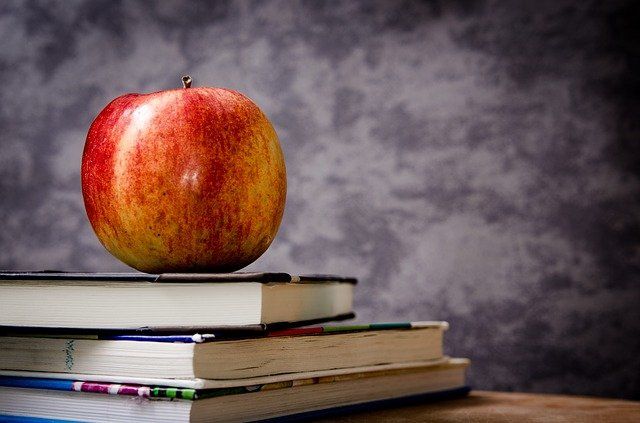When we think about education, the first things that come to mind are books, lectures, and exams. Teachers need to follow a pre-set pattern and structure with good planning. On the other hand, informal education is a free-flowing form of educating students, convenient for both teachers and students, making learning enjoyable.
To understand more about how informal education is making its way to students’ hearts, let us dive into a comparison:
Formal Education system vs. Informal Education System
A formal education system has defined structures, a syllabus, and semester deadlines. The method of having students sit in a traditional classroom to learn from teachers specializing in their area of expertise has defined ‘education’ for centuries.
The formal structure begins in the early childhood ages at Kindergarten or Montessori, including the fundamental skill development of reading and writing, and goes up to post-graduation. Every step of the education pattern is defined and set to meet the needs of students at various age groups as deemed fit by the authorities. This learning is tested using examinations.
Now, with changing times, it has been observed by the authorities, parents, and teachers alike that a formal structure may not be an equal form of education for all students. Hence, the informal education system was created to ensure the interest and spontaneity providing skill development by understanding the various learning styles of students. Teachers can give personal attention to each student and teach practical concepts for a better understanding.
The informal education system does not have any rigid structure or defined lines for teaching. The syllabus is covered using different tools and techniques by the teachers, keeping the needs of the students and their learning capabilities in focus. It also brings education and life together through its pedagogy.
Informal education follows the famous saying, “learning is a never-ending process.”
Characteristics of an Informal Education System
Informal education is an experiential form that helps build a student’s foundational value system with practical learning. Some characteristics of an informal education system are:
Spontaneity
The teachers are spontaneous and introspective. There is no rigid classroom structure followed. The learning happens in practical places like a market or a restaurant, in the open ground, or a drawing room with practical examples and storytelling to keep the students interested. Teachers catalyze conversations and drive life lessons from them.
Conversational
Informal education is not a lecture. It is a healthy discussion between teachers and students that begins with a conversation around life experiences. They may debate, engage, and learn from each other’s experiences. The process of listening and connecting makes this form of education more successful over time.
Undefined territories
Another exciting thing about following an informal education system is that no fixed territory is defined to learn. No schools or colleges are needed, and the students can be placed at any place or any time. Thus, inter-country education has become possible. It also doesn’t limit learning to exams.
Experiential education
Informal education does not require a syllabus or a timetable. It is delivered keeping a purpose in mind and ensuring that the students have something to learn from their environment. Furthermore, it encourages dialogue with oneself and others.
Benefits of Informal Education
An informal education system has many advantages. Every day of a person’s life is a new day to learn something new. There are no barriers. Some benefits of informal education are:
Learning on the go
The environment and the activities we do in our day-to-day lives can become an example to learn something from. Teachers’ connection with the students helps both to enjoy the process of informal education as the learning comes to life with examples and stories.
Relationship building
One of the most attractive benefits of informal education is that it helps build relationships at different levels. Informal education can happen through teacher and student relationships, peer-to-peer relationships, parent and child relationships, teachers and parents’ relationships, and more. The bond created is not limited to the child’s grade. This relationship-building also helps create communities with similar beliefs and values who look out for each other.
Exam-less education
This informal education system is a personal learning experience that does not require an exam. The students and teachers mutually decide how much information is enough at a certain point.
Despite the benefits, it cannot be side-lined that informal education may have some adverse effects. Learning wrong lessons like stealing or eve-teasing from their environment is possible. Hence, it becomes imperative to ensure the safety of students and make teachers accountable for what is taught in these classrooms.
An open communication channel is necessary between the parents and the teachers to ensure a safe environment for the kids.
A formal education system may provide discipline and help build a student’s lifestyle, but real-life learning experience comes through informal education. Hence, it would be a better approach to combine both the education systems, wherein teachers prepare students for competitive exams and more through formal education. At the same time, informal education must also ensure that the students are ready for real-life experiences post their school and college. It can only be done through an experiential learning process and the environment that teaches them to tackle an adult's everyday situations.
An informal education system will ensure students become more aware and responsible. Teachers need to put in more effort as there are no defined boundaries and structures. The responsibility to imbibe the correct values in the students and help them make accurate judgments and decisions to lead a happy and healthy life lies in the hands of teachers who are guides and mentors.
Formal education may complete by the time an individual is 22-23 years old, but informal education is a never-ending process.
Teachmint is the leading ed-infra provider helping educational institutions improve their efficiency. With our offerings like LMS, attendance management, fee management system, and more, institutes can boost their productivity multifold.






